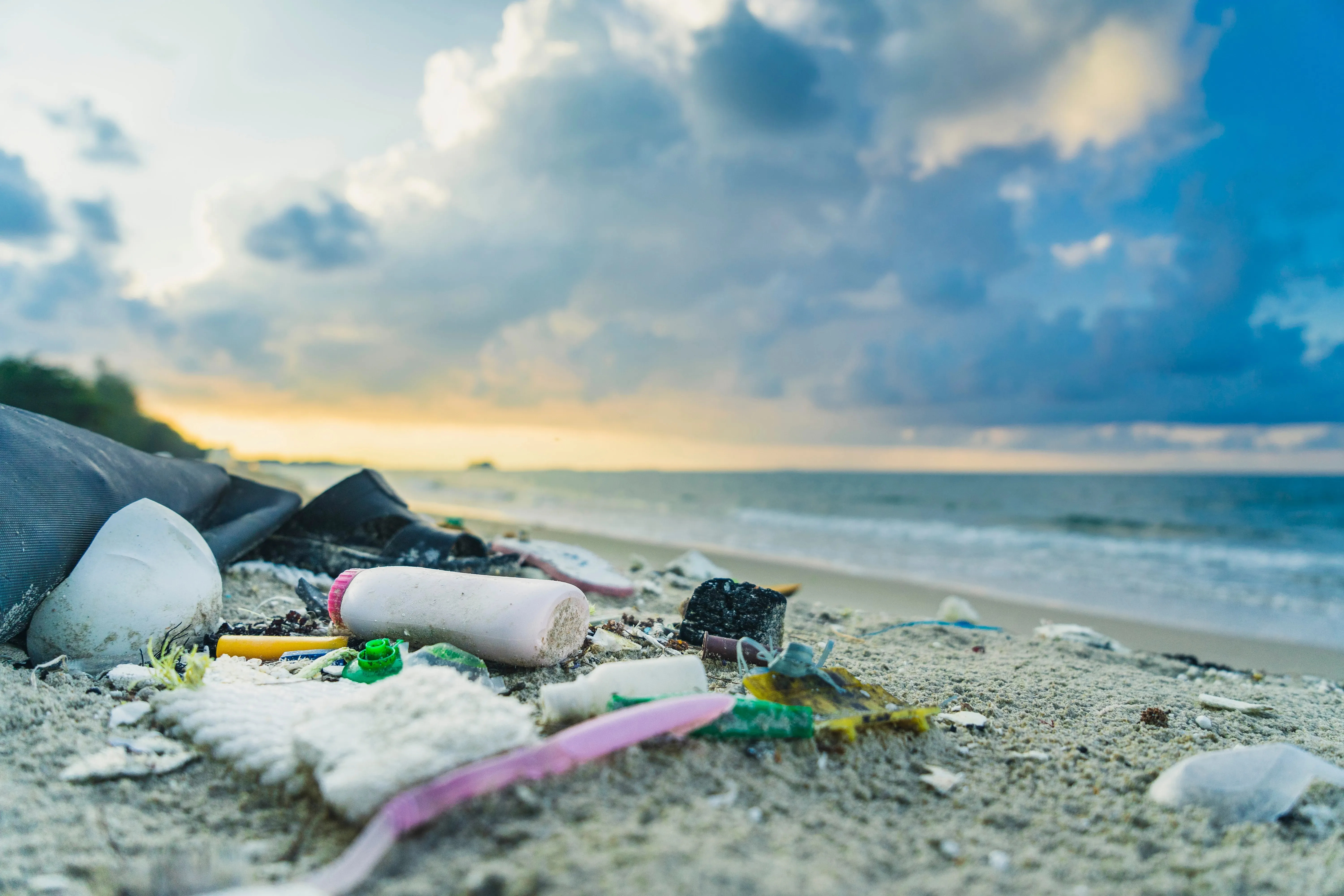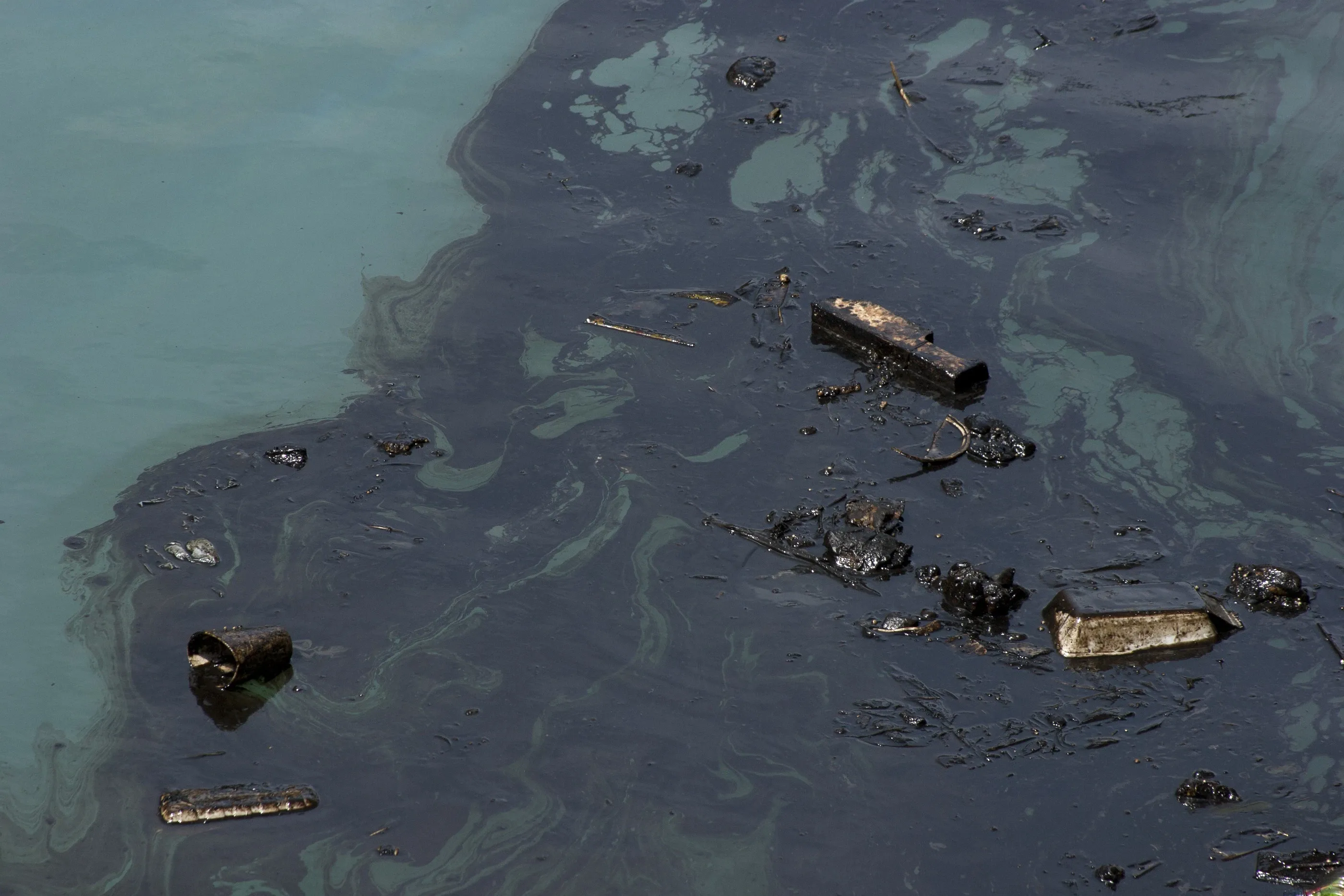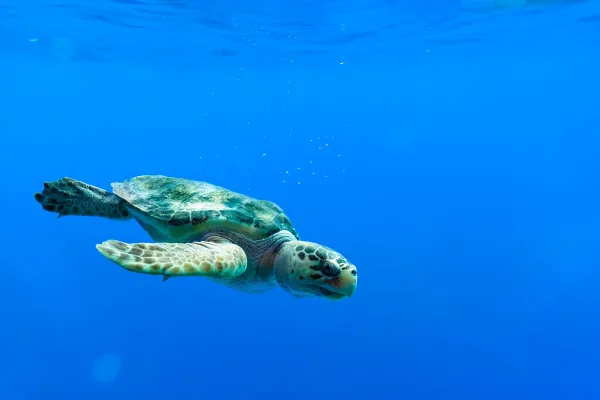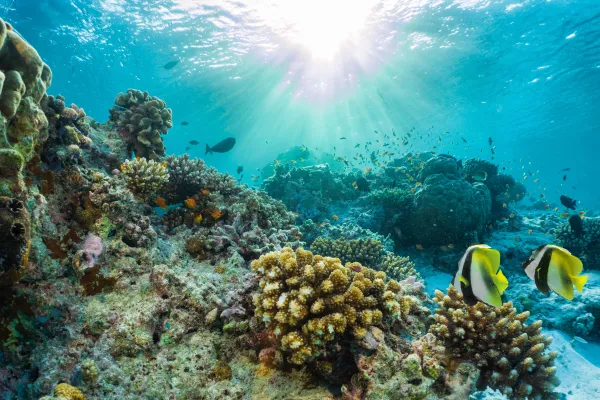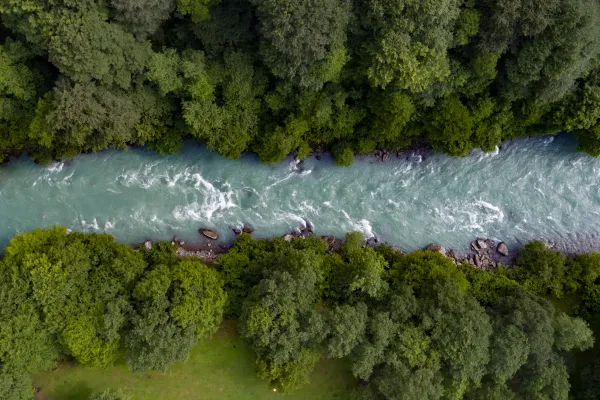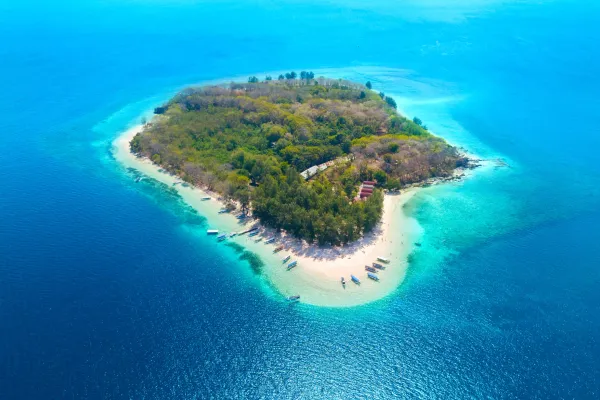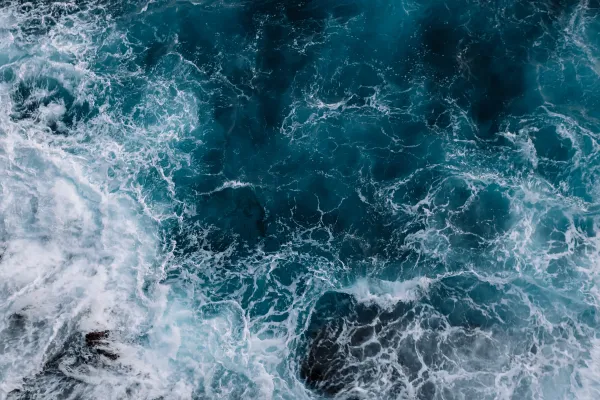Marine conservation: Protecting our oceans
We depend on the sea for our survival. Extending across more than two-thirds of the earth’s surface area, it produces roughly 50 % of the world’s oxygen. Additionally, it absorbs vast amounts of carbon dioxide that would otherwise be toxic to human life on Earth. It is a source of beauty, wonder, recreation, food, transportation, climate regulation, and industry.
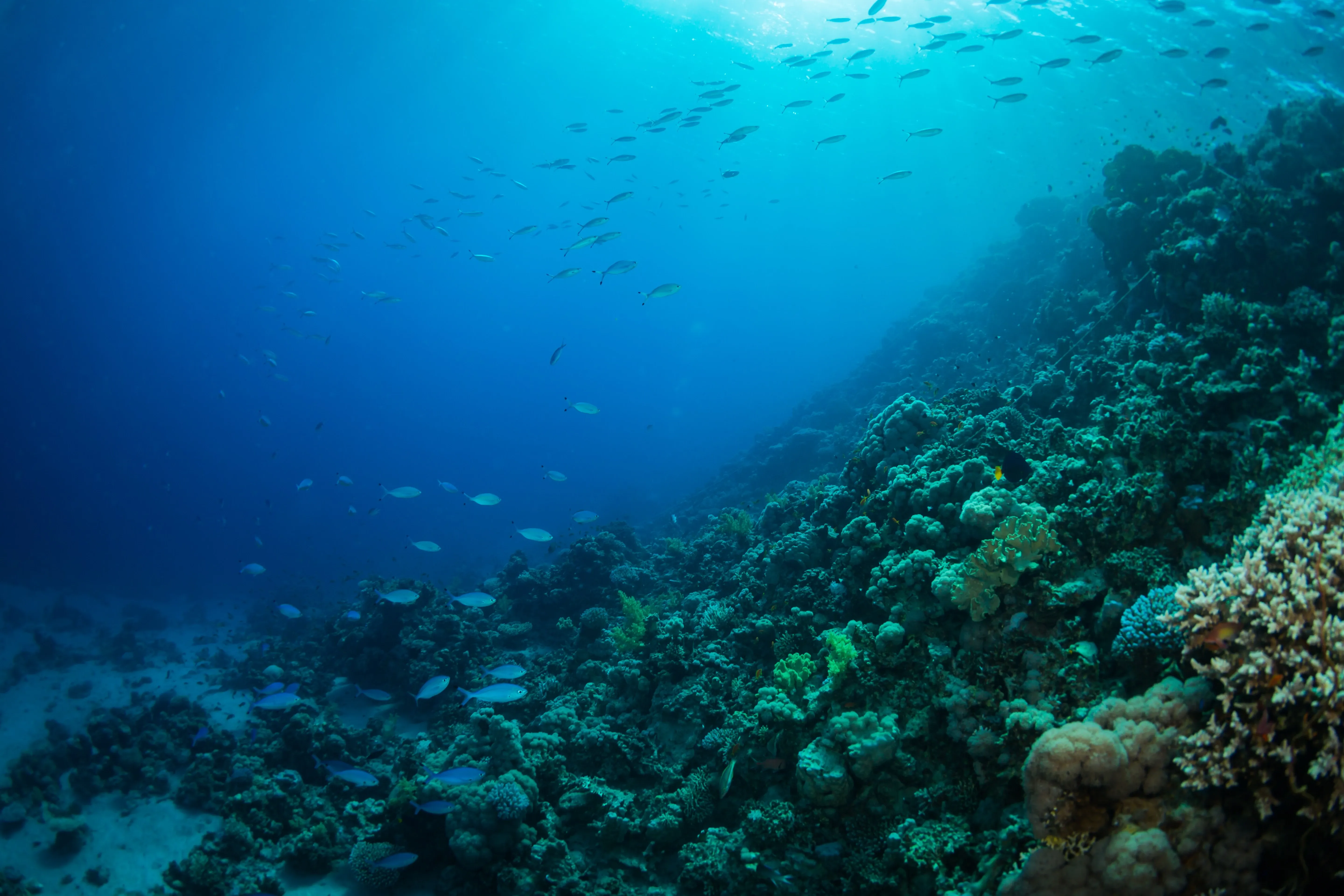
Each year, it creates millions of jobs and sustains millions of lives on land. Furthermore, the ocean makes up roughly 90 % of the planet’s biosphere. Consequently, its biodiversity is phenomenal. The sea teems with life, from microscopic plankton and colourful corals to enormous whale sharks and mighty great white sharks. However, it is under threat like never before, and we need to act fast to save it.
Why are oceans endangered?
Our ocean faces threats from multiple sources, including oil spills, toxic runoffs, plastic pollution, overfishing, and invasive species. 80 % of ocean contaminants come from the land. Water runoffs contain agricultural chemicals, sewage, engine oil, and other poisonous substances, while the ocean also absorbs air-borne pollutants. Plastic pollution is another ocean-killing gremlin. The situation is critical.
To illustrate, scientists estimate that there are over 5 trillion pieces of macro- and microplastics in the ocean. Additionally, roughly 100,000 marine mammals die from plastic pollution annually. Many marine species are at risk of extinction, and approximately 30 % of global fish stocks are overfished. However, climate change poses the most significant threat to the ocean by far.
Since the Industrial Revolution, we have spewed out steadily rising carbon emissions, causing temperatures to rise. Fortunately for us, the ocean has borne the major brunt of climate change, absorbing roughly 90 % of global warming. However, the sea has become more acidic as its temperature has risen.
Consequently, it eats away organisms such as clams, lobsters, oysters, and corals, many of which are crucial food sources for larger marine species. Therefore, their demise has a devastating cascade effect on the broader food chain. In this way, carbon emissions are slowly destroying our oceans.
»Winning the environmental war will require a commitment far beyond any commitment ever made by any society in the history of man. Are we able? Yes, we are. Are we willing? That is the unanswered question.«
Protecting and conserving the marine environment
The rapid deterioration of the marine environment serves as a stark reminder of the urgent need for action. However, even in the face of this concerning reality, there is reason for optimism. Although the challenges ahead may appear formidable, it's crucial to understand that the current decline is not beyond reversal. Rather than giving in to feelings of hopelessness, we can find encouragement in the countless individuals, communities, and organizations committed to protecting and revitalizing our oceans.
How does the trash get out of the sea?
Around the globe, various entities including non-profit organizations, community groups, corporate initiatives, and individuals are actively involved in coordinating and participating in cleanup efforts along coastal areas and rivers. This collective engagement reflects a widespread dedication to environmental stewardship. From remote coastlines to bustling urban waterways, volunteers devote their time and effort to clearing litter and debris, thereby contributing to the restoration of these crucial ecosystems and preserving their natural beauty.
Furthermore, recent years have seen the emergence of large-scale global projects that harness advanced technology to combat the pervasive issue of pollution in oceans and waterways. These innovative solutions include unmanned aerial vehicles (UAVs) equipped with sensors designed to detect marine debris, autonomous underwater vehicles (AUVs) capable of performing underwater cleanups, and machine learning algorithms utilized for analyzing and managing waste data. These advancements are fundamentally reshaping our approach to environmental conservation on a global scale, offering more efficient and effective methods for addressing pollution challenges.
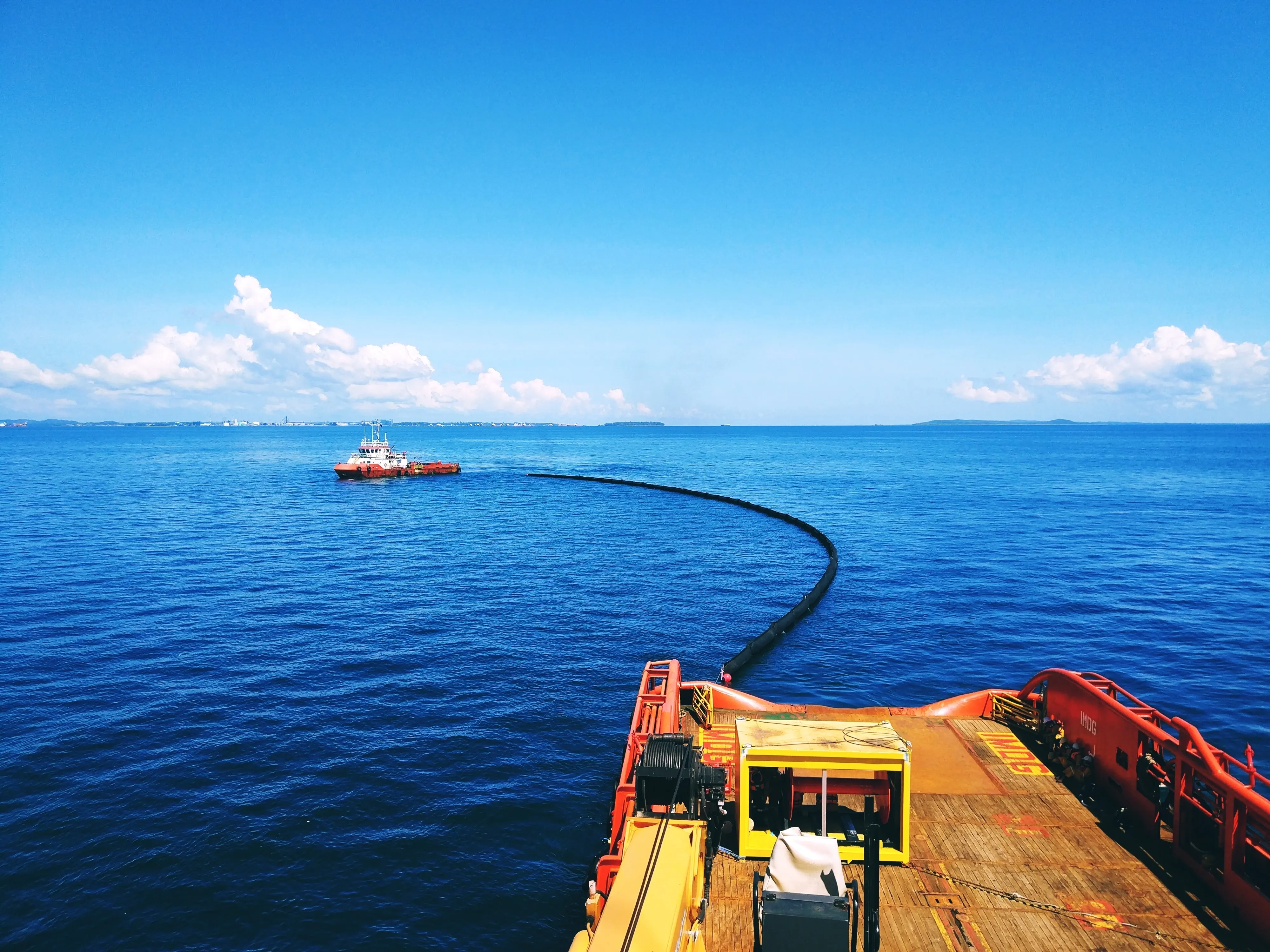
The Ocean Cleanup - a floating rubbish catcher?
One of these projects is The Ocean Cleanup, which started in 2013. Their state-of-the-art design employs a shallow net drawn by two vessels and aided by wind and ocean currents to capture floating debris. The net is shallow enough that marine animals can safely swim below it. However, it is deep enough to catch plastic pollution, which mainly floats close to the surface level.
Billed as the “largest cleanup in history”, it aims to eventually eliminate 90 % of floating ocean plastic. The Ocean Cleanup is currently focused on cleaning up marine pollution. However, it has recently expanded its operations to rivers, recognising that much plastic pollution reaches the sea through these channels.
»We set out in 2018 with Everwave to create awareness among our customers and society about the issue of littering in the world’s oceans and rivers. We have taken a 360-degree approach. We want to avoid synthetic and plastic waste in production. We would then like to make plastic redundant. We want to collect the plastic and litter in oceans and rivers and put them to a new use.«
Everwave – innovative technologies
Similarly, Everwave is pioneering tech-powered marine conservation via specially adapted river garbage collection boats. By collecting floating refuse in land-based waterways, their team intercepts it before reaching the ocean.
They hope to deploy these refuse collection vessels in as many rivers as possible worldwide to collect waste and return it to the cycle in a way that it will add value to the local community. Everwave has developed a partnership with giant GROHE that aids with funding and takes the initiative to the next level.
Projects like The Ocean Cleanup and Everwave are exciting, inspirational, and spell hope for the future of our ocean and our planet.
Sources:
National Geographic
The Ocean Cleanup
Ocean Service
Everwave
Sign up for the newsletter
By clicking on “Subscribe now” I will subscribe to the Conscious Explorer newsletter with all the information about mindful travel. Information on the success measurement included in the consent, the use of the shipping service provider MailChimp, logging of the registration and your rights of revocation can be found in our privacy policy.

